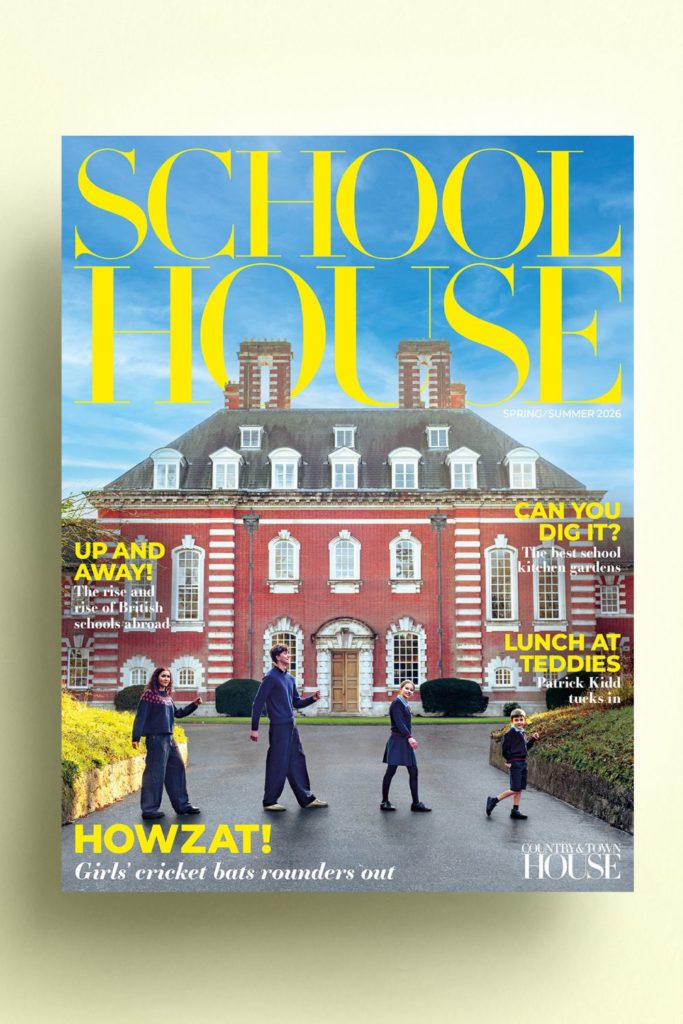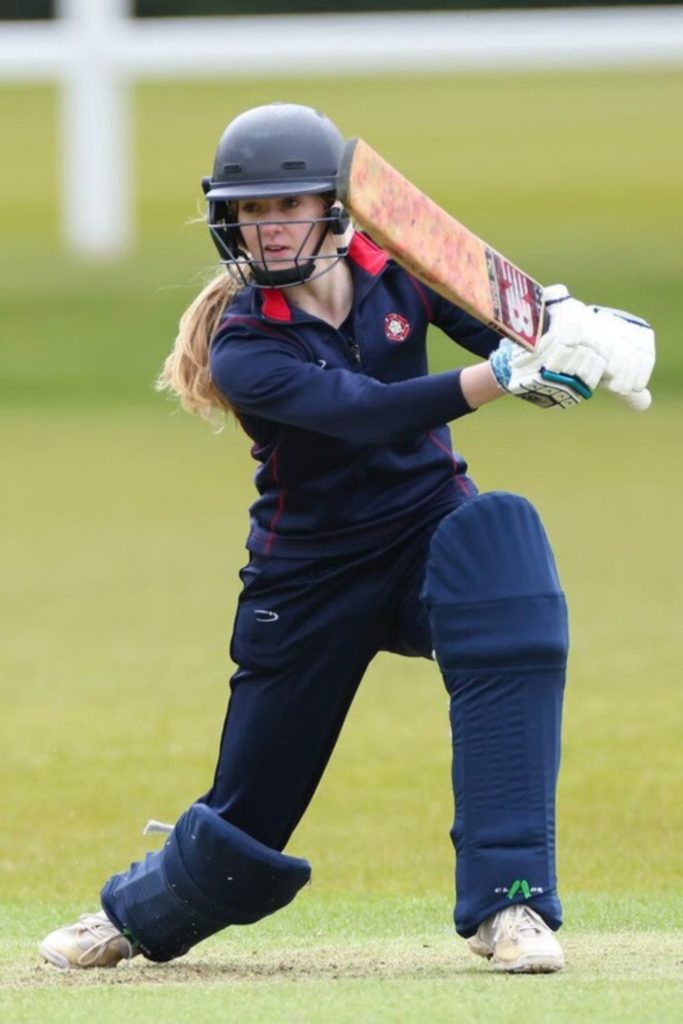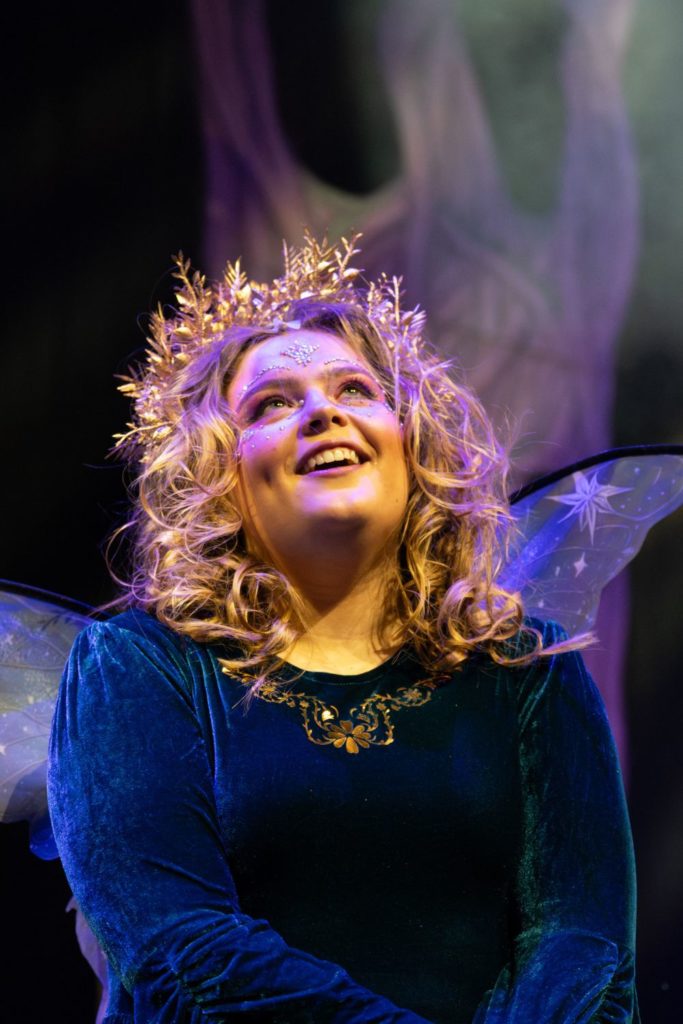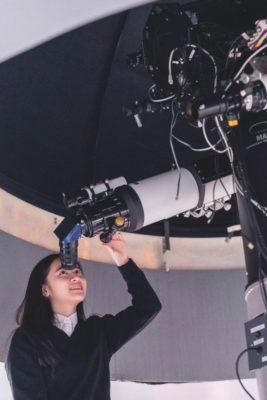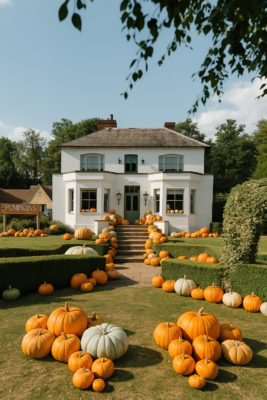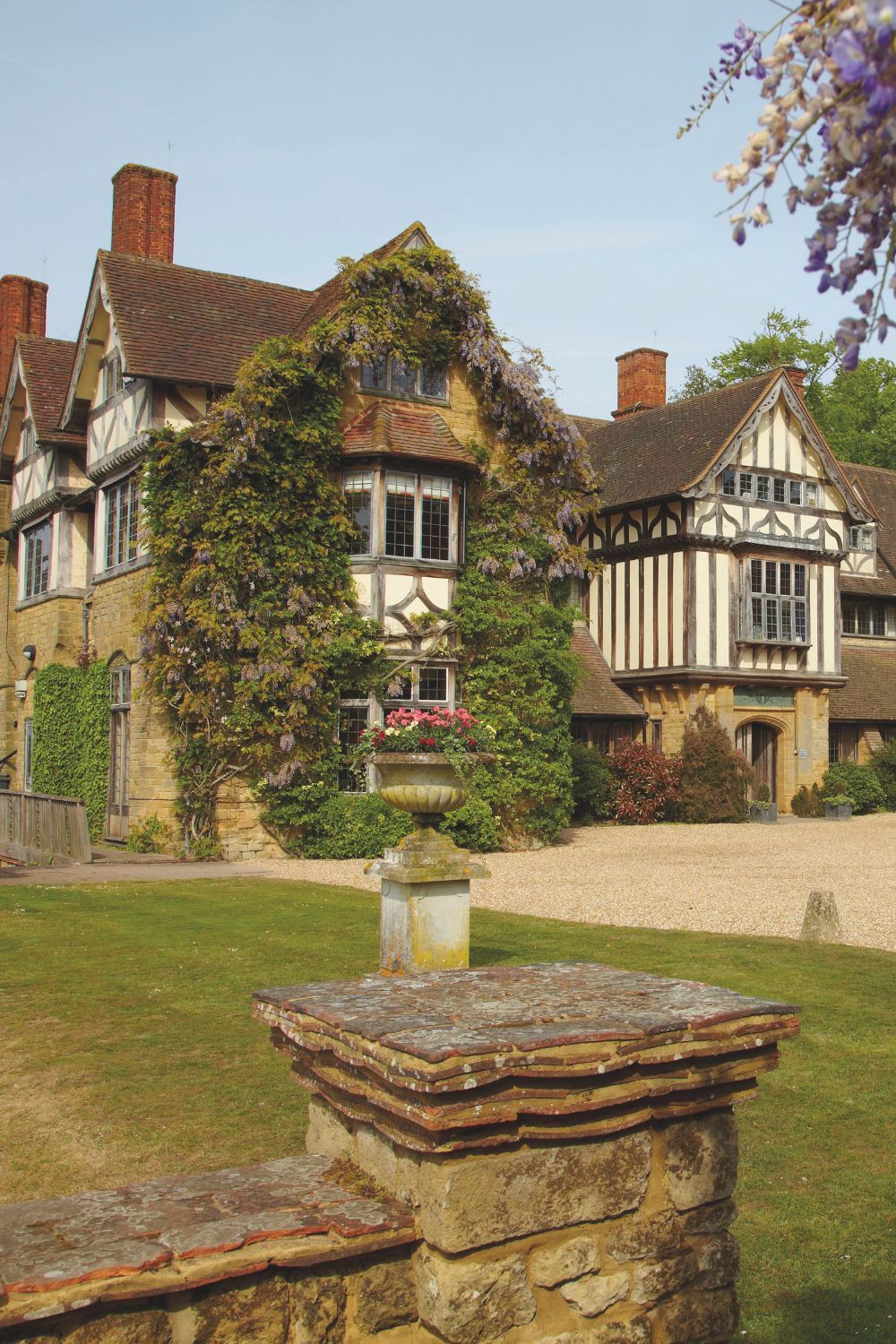
‘Theatre Gave Us A Voice’: The Risky Journey To Founding Hurtwood House
By
5 months ago
Richard Jackson created the school with his son's blackboard, an old typewriter and a vision
Hurtwood House describes itself as ‘the most exciting school in England’. Theatre and performing arts is at the heart of the Surrey Hills sixth form, with students taking part in 40 productions a year from rock concerts to Shakespeare. To mark the school’s 55th anniversary this year, Elizabeth Ivens spoke to its founder, Richard Jackson, about his risky and surprising journey to creating the school back in 1970.
Richard Jackson’s Journey To Founding Hurtwood House
At the height of a successful advertising career in the swinging sixties, Richard Jackson started to ponder whether there was something else he was destined to do. Casting his mind back to the sheer delight of an unplanned teaching job in the late 1950s, he began dreaming about opening his own school. Those of the era were almost routinely single sex with a regimented curriculum, but Jackson was convinced he could do something different.
His vision was to fan the flame of enthusiasm for older children, which he believed had all too often been extinguished by their teens. ‘At prep school level, these kids are fantastically keen, but then a blight descends on them when they go to secondary school,’ he explains. ‘I thought five years – or seven for girls – in one place was just Victorian. I wanted to create the best of public schools, but just in a sixth-form setting with no hierarchy.’
Jackson’s inspirational two-year teaching stint had only come about because the gradual phase-out of national service meant returning soldiers were given priority to study at some universities. His own place to read fine art and architecture at Cambridge was therefore deferred, and he applied to help out at the local school. ‘I really fell on my feet,’ Jackson recalls. ‘I enjoyed every moment; it was heaven for me. While I didn’t realise it at the time, it was going to turn out to be one of the most important times of my life.’
After Cambridge, Jackson was looking forward to a career in museums or art galleries when he was sidetracked into advertising. ‘It was 1963 – the world was changing,’ he says. ‘We had an office in the heart of Soho and it was clearly quite glamorous; it was very Mad Men, but I felt like an impostor in the world. I thought: “Am I doing anything that is worthwhile?”, and it came to me in a lightning flash that I had been truly happy during the two years I had been teaching.’
View this post on Instagram
Stepping into the offices of an old-fashioned education consultancy, Jackson asked, ‘Has anyone ever started a school?’ and was told, ‘not since before the war. What are you going to do, take on Charterhouse, Cranleigh and Radley?’ As luck would have it, the agency thought of him when an unusual opportunity came up in the Surrey Hills to tutor a group of 18 children. After persuading his wife, Linda, to leave their Kensington home and uproot their then-family of three children, Jackson set off on a path which would change all of their lives. Despite having no formal teaching qualifications, Jackson seized the opportunity – and when his new boss went bust within a term, he was sufficiently invested to take over the fledgling school himself. Armed with just a Remington typewriter and his eldest son’s nursery blackboard, Jackson set about recruiting the staff and pupils to create his vision: ‘a mini university where you can meet people your own age, with similar interests and a similar initiative to get out of the system’.
How Hurtwood Became A Leading UK Performing Arts School
Jackson admits he would have been perfectly happy if the school had grown to perhaps 50 pupils. But word quickly spread of his unconventional approach, with 90 percent of his business coming via word of mouth – both then and now. In 1974, the school moved to its current site with 35 students. Today, that number has grown tenfold, and 80 staff are now on board.
But although Hurtwood House is known today for its performance arts expertise, that was not always the case. It all began with a chance meeting at Hurtwood’s summer school: Jackson says he had a ‘Paul on the road to Damascus moment’ when he witnessed a talented drama teacher engaging inner-city children. ‘I asked him how he did it and he said: “It’s drama, Richard”. I understand that now.’
Jackson persuaded the teacher to come and work for him by promising to build a theatre. The theatre was duly built, and he joined the school. ‘Theatre gave us something different. It gave us a voice,’ Jackson explains. ‘We have always been non-conformist. We were teaching subjects like law, accountancy and business studies at a time when other schools were poo-pooing it, but no-one did theatre studies.’
It is clear he is just as passionate today about children studying theatre. ‘I was taking some parents around who probably weren’t that keen on the idea of theatre when I asked a student to explain why he studied it. He said, “Do you want me to tell them about the curriculum, or about how it changed my life?”. People don’t realise how it can achieve that magic if they are only used to the school play – but studying theatre instils trust, working as a team, relying on other people and confidence. I would liken what happened here to cultural rugby – it spread through every department.’
As well as routinely getting students into the best drama schools in the country, Hurtwood is quietly academic and gets its fair share into Oxbridge and leading universities. ‘The seeds of what Hurtwood would become were sown very early on; one of the things I didn’t like about my own children’s education was just a report at the end of term,’ Jackson says. Instead, students have always been holistically assessed and graded each week. ‘It’s about oversight and accountability. It’s about a safety net for the children and putting them back on the rails if they need it.’
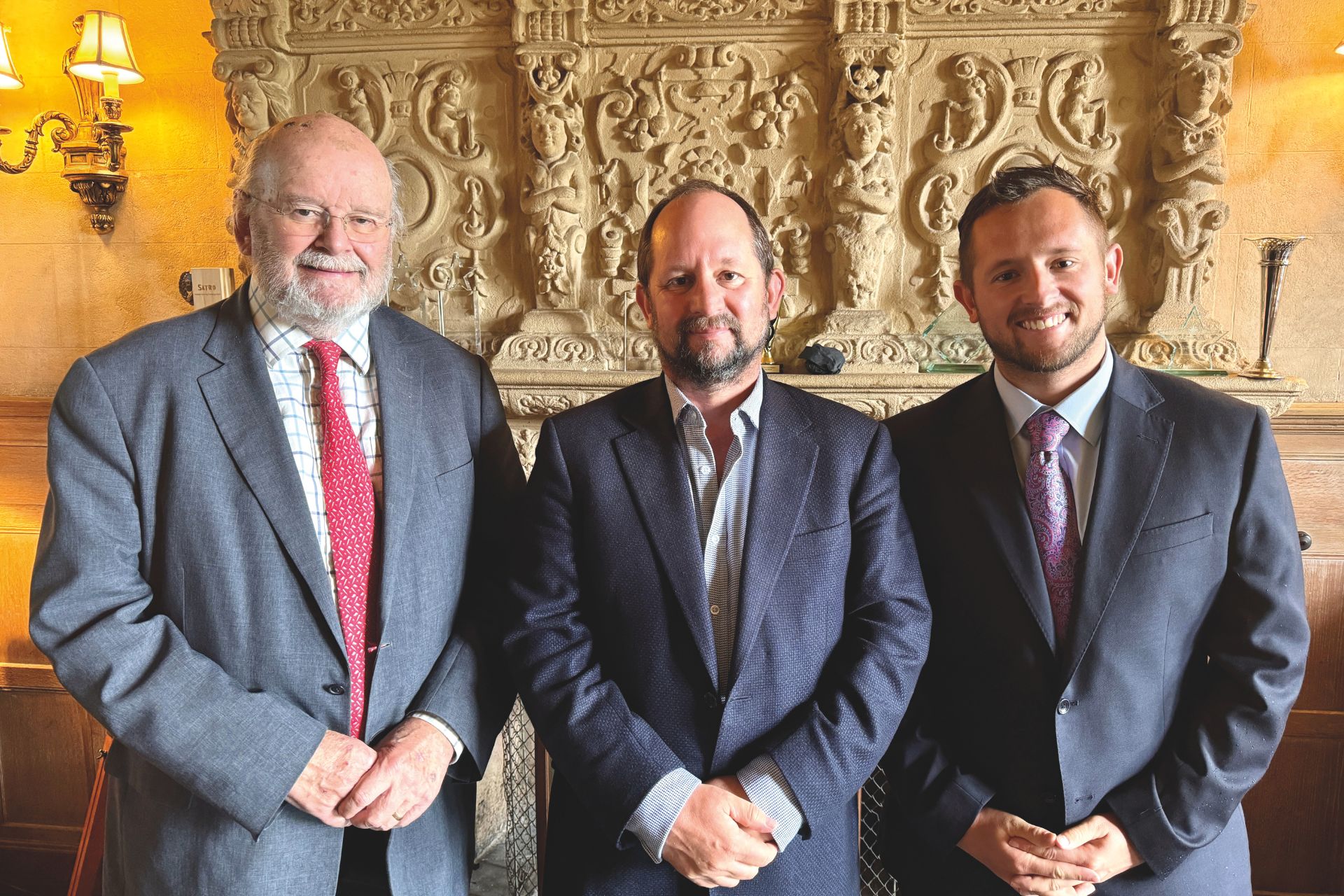
Three generations of Jacksons are involved in running Hurtwood House. From left: Richard Jackson, his son Cosmo, and grandson Harvey
While Hurtwood’s prestige in the performing arts is well-known – with professional agents typically attending its shows on the lookout for talent, and alumni including Emily Blunt and Harry Lawtey – you would be mistaken if you think Hurtwood House is merely a school for wannabe actors. It excels in dance, art, music and media; around half of its pupils take media studies A level, producing high-quality visual work. Students often take a creative subject alongside core academic disciplines.
Jackson’s continued vigour and passion for the school he founded ensures his demeanour belies his 85 years. Hurtwood remains a wholly family-owned and family-run business, with Jackson clearly proud he has passed his boundless enthusiasm to the next generation. Today, one of his sons, Cosmo, is head; his daughter-in-law Tina has long been involved and is currently head of admissions; and his grandson Harvey is course director of the summer school. Despite living on the grounds and being a daily visitor to the school, however, Jackson himself modestly ‘prefers to stay in the background these days’ – although he still gives the ‘rallying cry’ at the beginning of each academic year to staff.
And he is clearly proud of the legacy he has created. ‘I am always quite surprised when you sit in the theatre that once was a hole in the ground.’ He adds: ‘If I hadn’t started the school, these kids wouldn’t be here having such a great time, so I sometimes permit myself a little bit of satisfaction.’


